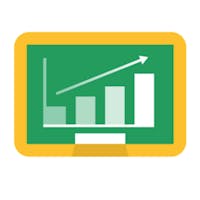Education has a data problem.
At the end of every academic year, school leaders routinely ponder what they could have done differently to better help their students succeed. Mountains of data are studied with charts and graphs plotted, but it is difficult at a system level to use final grades and test scores to figure out what exactly should change and why. At the classroom level, teachers spend an exorbitant amount of time distilling an entire year of information into a few sentences on student report cards, even though the intervention window has closed. For their part, parents are commonly surprised by the contents of these very same end-of-year reports and are left scratching their heads about what might have happened had they known earlier that their children were struggling.
This dichotomy of rich summative data but countless unanswered questions is the result of a growing pattern in education: schools have enough data to know that there is a problem, but they lack the right data at the right time to know when and how to address it.
From Lagging to Leading
Administrators, teachers and parents share a common desire to know more comprehensively how students are progressing—or not—at any time during the school year. However, schools depend largely on lagging indicators, which only identify issues after they arise. State assessments and report cards, for example, arrive too late to be actionable. Summative and formative assessments are better but still require a trade-off: time spent assessing instead of teaching. Schools need leading indicators of learning progression that flag at-risk students before they fall behind.
As schools undergo a digital transformation, precipitated by the global pandemic, there is now more data than ever available from digital learning tools—tracking time spent on content, work completion status and other streams of progression information. This powerful, real-time engagement data can be used to create a sort of living progress report on student learning.
At Schoolytics, our team has developed approaches to programmatically identify students who may be losing motivation or getting stuck on their work by connecting with more real-time data from learning management systems (LMS). Educators and specialists can also access a holistic view of the student through a single pane of glass that connects data from the student information system (SIS), assessment results and more, enabling them to provide personalized, differentiated support to students.
Activating Intelligent Automation
Tapping into these new leading indicators is just one piece of the puzzle. Schools also need ways to “activate” their data. The team at the Ed-Fi Alliance, an organization driving interoperability in education, wrote a compelling article in 2019 suggesting that dashboards may be a dead end. They ask, “When does a teacher have time to sit down, pull up [their] dashboard, and interpret what it’s saying about each student?” More to the point, should we expect teachers to spend time regularly doing deep dives in a dashboard, or are there ways to apply a layer of intelligence to these systems and prompt stakeholders to take action?
Instead of asking principals, teachers, students and parents to analyze and interpret complex dashboards, our team is designing tools that intelligently nudge stakeholders with pertinent information:
- Teacher: 5 students have not started working on an essay due Friday. Do you want to send them a reminder?
- Student: You have homework due tomorrow. Do you need any help completing this assignment?
- Intervention specialist: 12 students in your caseload struggled with assignments on decimals last week. Here are three recommended prerequisite skills to teach in your upcoming sessions.
- Parent: Your learner has turned in 50% of their work late in the last 2 weeks. Would you like study support?
![Schoolytics Educator Notification Schoolytics Educator Notification [image]](https://edsurge.imgix.net/uploads/photo/image/8832/Schoolytics_-1627483870.jpg?w=216&h=108&auto=compress,format&fit=fill&bg=fff&pad=0&blur=10&px=4)
Increasing Agency
When all stakeholders have access to the data they need, everyone is empowered to make better decisions. For teachers, this means tools that save them time and help them communicate better with students, parents, colleagues and administrators. With automation and data flows in place, teachers can send more frequent and personalized updates to parents—timely information about how their children are doing academically and what can be done at home to bolster learning. Whether learning takes place at home or in school, connecting parents and teachers will result in better student outcomes. At Schoolytics, we are making data on learning and development more accessible to parents, guardians and students through our Family Portal.
Along with more accessible data and automated alerts, there is immense value in giving students greater insight into their own learning progression. Allowing students agency over their own data is a powerful way to engage them, especially when paired with a fun and exciting user experience. Student voice and choice are key to building engagement and motivation in the classroom.
![Schoolytics Parent Portal Schoolytics Parent Portal [image]](https://edsurge.imgix.net/uploads/photo/image/8833/Schoolytics_Parent_Portal-1627573530.jpg?w=216&h=108&auto=compress,format&fit=fill&bg=fff&pad=0&blur=10&px=4)
Moving Forward
Schools quickly adapted during the pandemic to support the complex needs of students with a host of new digital learning tools. These tools have introduced an entirely new category of data for schools, and student data platforms can help activate that data through intelligent automation that supports personalized teaching and learning.
It would be a shame to exit the pandemic without learning something from it. Let’s use the new tools and new data at our fingertips to more quickly identify at-risk students, support differentiated instruction and save time and money to invest in what matters most.



